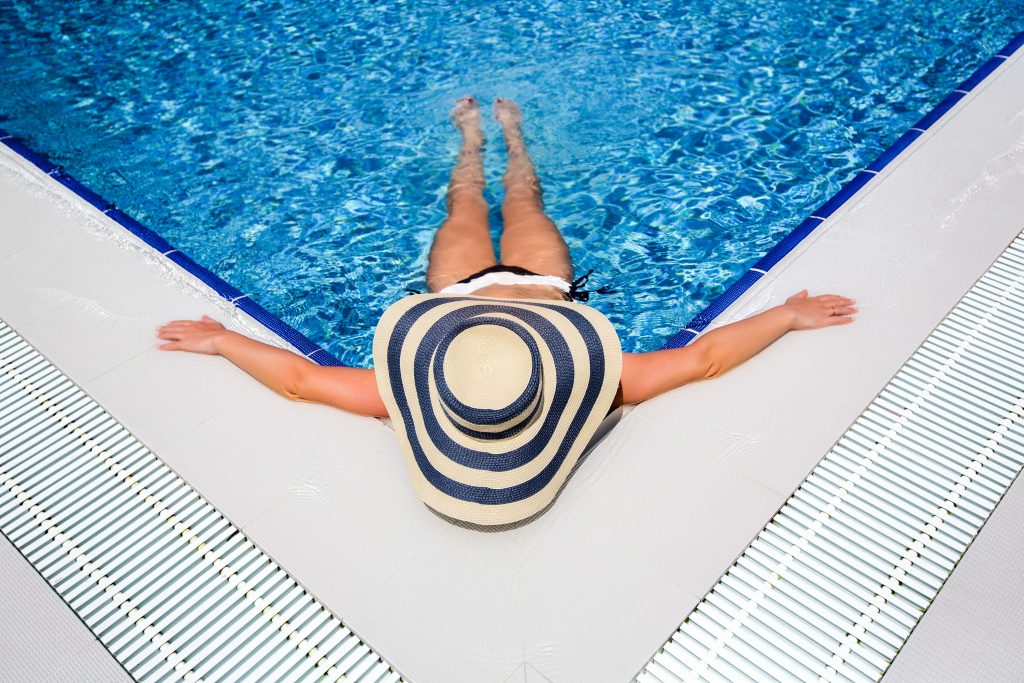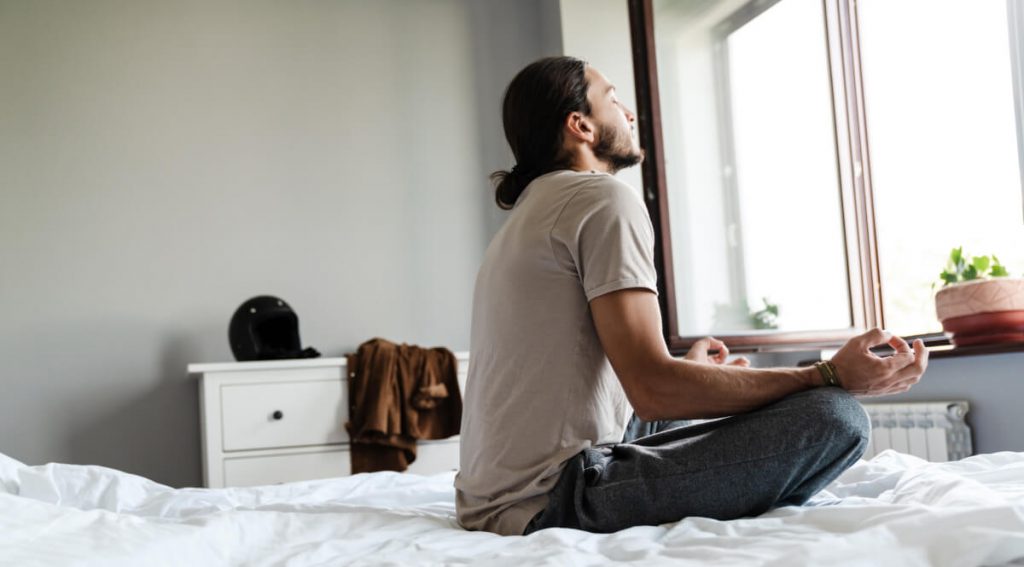
School Administrators Must Find Pause This Summer.
Here are 3 Ways How.



By: Tyler Mallet
Your custodian has the whole hall to himself as freshly shined floors reflect his buffing machine. The scent of wet paint on blank classroom walls awaits a new batch of students. Your bell still rings, but the usual footsteps are nowhere to be heard.
As an administrator, this slower pace is your once-a-year chance to catch your breath.
Your farewell message to your teachers probably said, “Go take time to recharge.”
Yet, it’s much harder to practice that advice yourself. Polling my friends and family who are principals, their July punch lists sound more like:
- “Finish my dissertation.”
- “Organize my closets.”
- “Handle my dentist appointments.”
- etc.
Don’t get me wrong; I’m not saying you shouldn’t catch up on what you neglected during the school year. What I am encouraging in this article is to throttle your tendency to overcommit.
Old Habits Die Hard

School leaders, compared to other professions, have brains that are habitually wired to make too many commitments. Like an Olympian never misses a day of practice, you have sprung out of bed for 180 mornings to make lists, pack your calendar, and respond to the needs of others. Over time, this repetitive practice makes you an expert at feeling busy.
Stretching yourself thin is a hard habit to break. It’s no wonder you find it difficult to switch your brain into recovery mode when summer finally arrives.
Let’s examine why pause might be the most productive thing we should be doing right now.



We Must Remember: To Pause is Natural
Ebbs and flows are in our nature. Deep down, your inner wisdom already knows that. Do me a favor, and feel your heartbeat. There is a beat and then a bit of silence, right? Likewise, ocean waves have crests at the top and troughs at the bottom. Life is all about yin and yang.
I think the reason education feels like an impossible profession sometimes is because your workdays often go against nature. You understand that your leadership battery is charged by the ebb. Yet, the reality is that much of your job has been all peak and no valley.
It’s not too late to become the rested leader that your staff and students desire. All you have to do is listen to your body’s natural call for a pause.
Tip 1. Build Pause into your Schedule

“The key is not to prioritize what’s on your schedule, but to schedule your priorities”
Stephen Covey
If feeling too busy makes you repeatedly neglect your own care, consider that your sign that you need to start scheduling it.
While having your morning coffee, make a list that not only includes your work goals for the day, but also at least one pause goal.
What’s a pause goal? Any scheduled block of time for a non-work activity, selected by you. This can be anything relaxing, fun, or that moves you closer to a personal aspiration. A daily pause goal should be self-chosen, and it should offset your workplace commitments by making you feel as though your day is in balance.
Examples of pause goals.
- Take 15-30 minute work breaks
- Clear your mind with a hobby
- Lift weights and/or do cardio
- Learn about something interesting
- Have an enjoyable conversation
- Explore nature
- Entertain yourself (TV, reading, music)


Be reasonable. The only way to schedule in down time is to be reasonable about how you use your up time. Instead of the dozens of tasks you typically commit to finishing on a regular school day, limit your summer list to completing only three (3) high value activities each day. District leaders frequently tout an ability to prioritize as one of the most valuable skills a principal can learn. Therefore, start your summer mornings by practicing deciphering what are the 3 most important items you can do today.
Do’s and Don’ts:
- Avoid planning this in your head. Always write your 3 goals and your pause goal down. See them as mandatory meetings with yourself.
- Avoid waiting until later in the day. Always set your goals first thing upon waking– before the day has a chance to get in your way.
- Avoid copying someone else’s pause style. Just because your friend binges Netflix or your neighbor goes to cycling class does not automatically mean those activities are ideal for you. Embrace trial and error until you find activities that truly make you feel refreshed.
Even an hour a day devoted to pausing will get your brain into a routine of seeing yourself as a whole person instead of a machine that never shuts off. This is the mindset we need as we return to school.
Tip 2. Communicate your Social Boundaries



Your family and friends love your summer break too. It’s the one time of year they get access to the uninterrupted version of you, which is probably why you are receiving many social invites.
However, if your week starts to feel overly booked with social commitments, this could reduce your available pause time.
Alone time is okay. While you want to make great summer memories, keep in mind that it’s acceptable to pause from others if you feel that you need it.
Tell it like it is. The best way to draw boundaries around your time is by communicating honestly about what you do/don’t want to do this summer.
Remind them that for 9 months of the year, you work in the noisiest profession. Therefore, while you appreciate opportunities to be social, you may need to politely decline a social event and instead have some quiet space to recharge.
Tip 3. Bookend your Day

“Either you run the day or the day runs you.”
Jim Rohn
One of the best habits you can practice before going back to school is starting and finishing each day with silence.
For me, I always notice a dramatic difference in my mood and productivity on days when I guard my morning and night time rituals. Many of the world’s top performers in business, entertainment, and sports give credit to this habit as the secret to their success too.
Get your mind ready first. Think of a morning routine as an extension of your get-ready routine. Without overthinking it, we prepare our clothes, brush our teeth, and wash our faces daily. In the same way, your mindset needs a tune-up upon waking. This takes a lot of practice, but before reaching for your phone, just sit for a moment for some quiet time.
- Meditate for 5 minutes,
- Read something inspirational,
- Or journal to get yourself in a positive headspace for the day.
Power down properly. At the end of the day, the same is true. Don’t exhaust yourself until you just flop down in bed and fall right asleep. Instead, try listening to relaxation audio in your headphones or some more quiet journaling to wind down before bed. The mental state you fall asleep in will be the mood you wake up in the next morning.
Protect this time. On your most hectic days, morning and night are the two blocks of time that nobody can schedule for you. They are yours. Once your day starts, the emails, projects, and unexpected issues come pouring in. This makes it much tougher to pause.
It's Just as Productive to Pause
“We’re convinced that with just a bit more speed we could stay in control – and so we grow unwilling to tolerate the discomfort of slowing down.”
Oliver Burkeman
It’s a great lesson in self-awareness to remember that we are terrible at prioritizing pause. Being a leader in a school district means constant external pressure to perform– and that pressure often translates into us not wanting to waste any time.
As psychologist Nathaniel Branden said, “The first step toward change is awareness.” Simply knowing that we struggle to pause is the inspiration we need to treat ourselves more kindly.
When I’m feeling the physical symptoms of a plate that I have made too full, I am reminded of The Guardian writer Oliver Burkeman’s words (above). Slowing down is uncomfortable. Yet, usually that discomfort, he says, is a sign we need it most.
How are you practicing Pause this summer?
